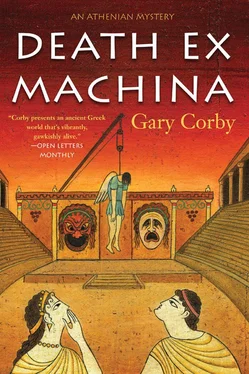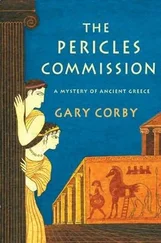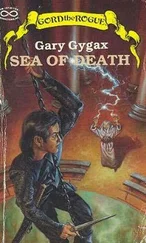Gary Corby - Death Ex Machina
Здесь есть возможность читать онлайн «Gary Corby - Death Ex Machina» весь текст электронной книги совершенно бесплатно (целиком полную версию без сокращений). В некоторых случаях можно слушать аудио, скачать через торрент в формате fb2 и присутствует краткое содержание. Год выпуска: 2015, ISBN: 2015, Издательство: Soho Press, Жанр: Исторический детектив, на английском языке. Описание произведения, (предисловие) а так же отзывы посетителей доступны на портале библиотеки ЛибКат.
- Название:Death Ex Machina
- Автор:
- Издательство:Soho Press
- Жанр:
- Год:2015
- ISBN:978-1-61695-520-5
- Рейтинг книги:3 / 5. Голосов: 1
-
Избранное:Добавить в избранное
- Отзывы:
-
Ваша оценка:
- 60
- 1
- 2
- 3
- 4
- 5
Death Ex Machina: краткое содержание, описание и аннотация
Предлагаем к чтению аннотацию, описание, краткое содержание или предисловие (зависит от того, что написал сам автор книги «Death Ex Machina»). Если вы не нашли необходимую информацию о книге — напишите в комментариях, мы постараемся отыскать её.
Death Ex Machina — читать онлайн бесплатно полную книгу (весь текст) целиком
Ниже представлен текст книги, разбитый по страницам. Система сохранения места последней прочитанной страницы, позволяет с удобством читать онлайн бесплатно книгу «Death Ex Machina», без необходимости каждый раз заново искать на чём Вы остановились. Поставьте закладку, и сможете в любой момент перейти на страницу, на которой закончили чтение.
Интервал:
Закладка:
Lysanias was rolling on the floor, tears running down his face.
“I’m sorry, Sophocles,” I said.
Sophocles sighed.
“Don’t bother trying to talk yourself out of it,” Sophocles said. “Now listen closely, young man. The whole point of tragedy is to teach people the difference between right and wrong.” He glared at me.
“It is?”
“It is. In tragedy a great man makes a mistake. He does wrong when the Gods gave him the power to do right. Then we see his downfall: the consequences of his mistake. This teaches the people that right might not always be rewarded, but wrong is always punished. A tragic writer has the greatest responsibility to the people, because we are the teachers of morals. If we produced plays that praise bad behavior, then the people would copy the behavior of their onstage heroes and the state would collapse.”
“I see.”
“We must hope that as you grow older you acquire some taste for both the tragedies and the comedies. I despair when I look at the stuff that passes for comedy these days. How anyone could think it’s funny to watch people hitting each other with pigs’ bladders is beyond me.”
Sophocles clearly didn’t frequent the same circles I did.
“Tell me about the noose,” I said.
Sophocles said, “It was my idea to hang the god of death. The noose is joined to the machine’s rope on a stretch that is longer than the remaining rope to the actor’s harness. The difference is only a hand’s length, but it’s enough.”
Sophocles demonstrated with his hands.
“You see the effect?” Sophocles said, warming to his subject. “I thought, since it was impossible to hide the rope from which Thanatos hangs, I may as well make it work as a part of the play. The real remaining length of rope is painted blue to match the sky. The noose seems to be the only rope up there. To the audience they see the god of death appear as a hanged man.”
“It was certainly realistic from where I sat during rehearsals,” I said. “Everyone was terrified.”
Sophocles beamed. “It’s always nice to hear that an effect worked.”
“Perhaps a little too well?” I suggested.
“That’s not my fault.”
I was frustrated. I’d hoped to learn something of Romanos. But other than that he was a good actor, which I already knew, I’d learned nothing. It seemed odd that the man should be such a cipher. He’d seemed perfectly open when Diotima and I had spoken to him in the rain. I said as much to Sophocles, who shrugged.
But Lysanias poked up his head from the massage and said, “Have you talked to his sponsor?”
“Who?” I said. “What sponsor?’
“Didn’t you know? All metics are required to register with the state, and they must have a sponsor.”
“I never knew,” I admitted. It occurred to me, with some surprise, that except for Diotima, who had been a metic before we married, I too had never socialized with metics.
“Who was the sponsor of Romanos?”
“You must ask the Polemarch,” Lysanias said.
“Did the Polemarch know Romanos?” I said.
“I doubt it. But the Polemarch is responsible for all metic affairs. If anyone would know who the sponsor of Romanos was, it’ll be him. You probably need to do it anyway. The sponsor must be informed that his client is dead.”
SCENE 17
It seems to be a rule that every important official in Athens must have a long queue of men outside his office door. I had never been to see an archon who wasn’t overwhelmingly busy. The Polemarch was no exception. The difference was, the men outside the Polemarch’s door spoke with foreign, non-Athenian accents.
The Polemarch’s office was an ancient building called the Epilyceum. It stood just beyond the official bounds of the agora. The Epilyceum showed several centuries of maintenance. The original wooden beams, so old that they’d turned deep black, poked out between the newer stone facade of later renovations.
It was a measure of how long you had to wait to see the Polemarch that supplicants had scratched game boards into the stone of the street outside. Even the game board scratchings were well worn from years of game pieces moving across them. Men were hunched over these boards. Others silently watched the traffic pass by, and many talked amongst themselves.
I listened carefully to the words of the other men, to place their accents. It isn’t always possible, but you can take a guess at a man’s home because most cities have slight differences in the way they say their words. At Diotima’s suggestion I had recently begun to pay attention to such differences.
A handful of accents were northern, from Thebes perhaps. The people of the north spoke with an accent that approached barbaric, and sometimes used words common to the barbarian tribes to the north of Hellas.
The great majority spoke the Ionian dialect of the Aegean Islands. It was the same dialect that was spoken in Athens. There are a hundred of these islands. Common among them was the distinctive Ionian as it was spoken on the mainland and on the other side of the sea, in the region that is called Anatolia.
Listening to their conversation, I realized many of the men who waited with me had come to apply for permission to live in Athens.
So many men. Was it like this every day?
“Is there a Nicolaos, the son of Sophroniscus?” A voice called from the Polemarch’s door. Not the Polemarch, but his assistant. He held a wax tablet and frowned.
“That’s me,” I said.
The Polemarch sat at a writing desk, on a chair of curved timber and a comfortable rounded back. The table and chair were both expensive pieces whose legs were shaped to resemble the legs and feet of a lion. I guessed they were both from the same carpenter, and that they were the personal property of the Polemarch, the more so because the wood was polished elm, which is very heavy and hard and far beyond the budget of the state. The Polemarch was a rich man to own such things.
“You’re the man I received a note about,” the Polemarch said as soon as I entered. His voice was a deep bass. “From Pericles. Something about a total disaster at the theater? He seems to blame you.”
“A murder, sir.”
“That sounds bad. Why did you do it?”
“I think you might misunderstand, sir. I’m the detective.”
“Ah, I see. And there’s a meeting this afternoon?”
“Yes, sir. At the home of Pericles.”
“Well I have a lot of work to get through before then. What can I do for you?” he asked.
I said, “I hoped, sir, that before the meeting you could tell me something about metics. They must come to you, mustn’t they, to live in Athens?”
“Yes. That’s what that long line is outside. Any man from another city who wants to live in Athens must register with my office. As long as he pays his registration fee and names his patron, he’s in.”
“Are there any restrictions on the metics?”
“They may not own land. That is reserved for citizens. Metics pay slightly higher taxes, though the difference is nominal. I assume you know that a trial for the murder of a metic is heard in a lesser court than that for a citizen.”
“No sir, I didn’t.”
“Well you do now. If one metic kills another, we’re as likely to exile the murderer as execute him. It’s so much less messy that way.”
“What if a citizen murders a metic?” I asked.
“That’s why these cases are always heard in a lower court. The citizen would be exiled for a period of years, or face a massive fine. If metic murders were heard in the highest court, it would mean a citizen could face death for killing a non-citizen. That wouldn’t do at all.”
Читать дальшеИнтервал:
Закладка:
Похожие книги на «Death Ex Machina»
Представляем Вашему вниманию похожие книги на «Death Ex Machina» списком для выбора. Мы отобрали схожую по названию и смыслу литературу в надежде предоставить читателям больше вариантов отыскать новые, интересные, ещё непрочитанные произведения.
Обсуждение, отзывы о книге «Death Ex Machina» и просто собственные мнения читателей. Оставьте ваши комментарии, напишите, что Вы думаете о произведении, его смысле или главных героях. Укажите что конкретно понравилось, а что нет, и почему Вы так считаете.












